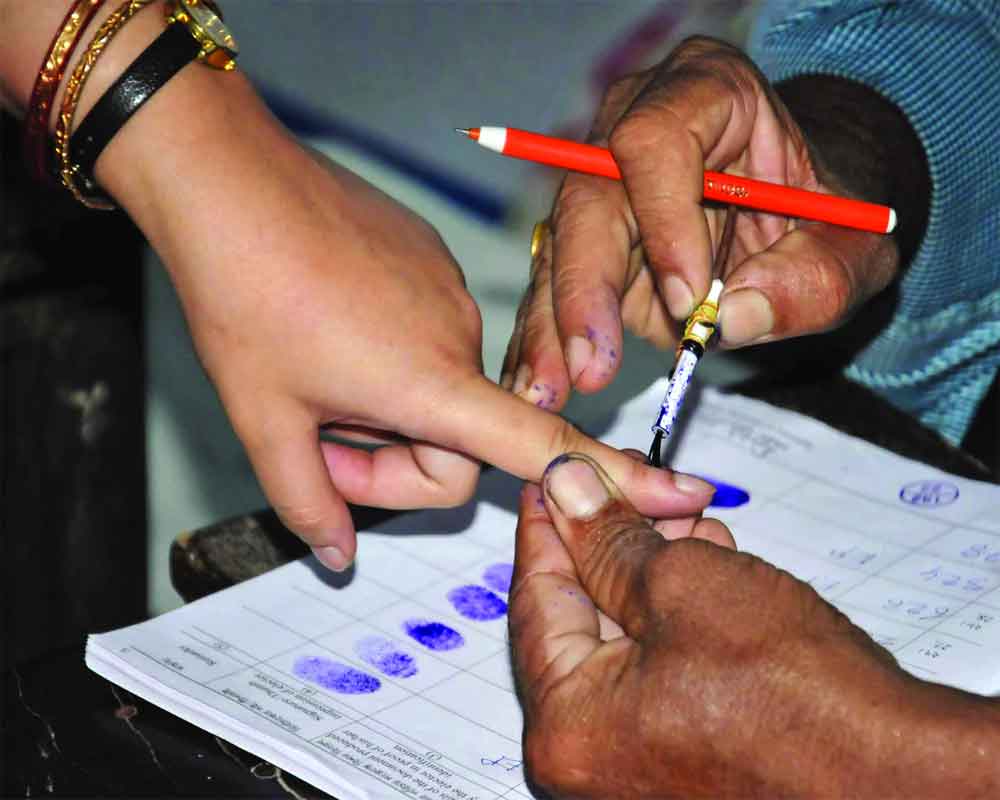PRIYOTOSH SHARMA and CHANDRIMA DUTTA address this question posed by sceptics on whether the consolidation of electoral cycles could lead to a domination of the political narrative by parties and candidates vying for power and potentially undermine the essence of democracy by overshadowing the voices and choices of individual citizens
In India’s democratic landscape, elections have long stood as pillars supporting our diverse linguistic tapestry and regional pride for over seven decades now. Stating Amartya , individuals can hold singular affiliations while valuing their multifaceted identities. But a pressing question arises: If one Nation, one Election were to happen, would national unity overshadow regional loyalties? Sceptics have raised concerns that the consolidation of electoral cycles as a question of national importance could lead to a domination of the political narrative by parties and candidates vying for power. The emphasis may shift away from citizen engagement and democratic participation towards partisan interests and power struggles. This could potentially undermine the essence of democracy by overshadowing the voices and choices of individual citizens.
It’s noteworthy that the proposal of One Nation and One Election is not a recent development. As far back as September 1982, the Election Commission of India recommended simultaneous elections to both the Lok Sabha and State Legislative Assemblies. Additionally, the Law Commission of India’s Draft Report on Simultaneous Elections in August 2018 further explored this idea. Given this historical context, one might wonder why the ruling party suddenly embraced this proposal in their manifesto ahead of the 2024 general election.
The sudden appropriation of the One Nation and One Election proposal by the ruling party likely reflects a strategic move to prioritise electoral reform and streamline governance processes. However, such a significant shift in policy approach raises questions about the underlying motivations and potential implications.
India’s governance model hinges on representative democracy, where elections serve as the bedrock of our political system. Campaigning, a pivotal aspect of elections, comes with substantial costs. A case in point is the staggering expenditure seen between February and May 2019, where Google and Facebook collectively reported political online advertising spending amounting to `58.67 crore. Notably, while Google declared 12,276 advertisements worth `29.3 crore, Facebook’s India Ad Library disclosed a significantly higher volume of individual advertisements, totaling 132,419 and valued at `29.28 crore. Yet, amidst this financial discourse, we often overlook the ripple effects of reducing the frequency of elections. Such a move could inadvertently disrupt sectors that thrive on heightened electoral activity, notably advertising, hospitality, and transportation.
In light of this, it becomes imperative to carefully consider the implications of “One Nation, One Election” on federalism, regional dynamics, and political stability. For instance, the recent issue in Manipur over regional disparities highlights the potential risks and challenges associated with synchronising elections across different levels of government. As such, thorough deliberation and stakeholder engagement are essential in the electoral reform process to ensure that any changes uphold democratic principles and address the diverse needs of the respective states.
The ongoing debates outside of parliament surrounding One Nation and One Election are fueled by contrasting perspectives. Proponents argue that synchronising elections would bolster national unity by aligning electoral cycles and directing political discourse towards pressing national issues. At least for a brief period of time this narrative of one nation, one election, would appeal to the imagination of the public, as it would come on a platter of “national interest”. However, sceptics raise concerns that this unity could merely be a facade concealing broader political agendas.
Another significant issue that may raise eyebrows among the opposition is the prospect of diminished accountability if elections are held every five years. This could spark doubts regarding the government’s responsiveness to pressing concerns, such as notably fluctuations in oil prices, sharp fluctuations in food prices and hikes in gas cylinder costs paralysis citizen’s every potential to remove a party from power through electoral process at least in state legislative elections.
In navigating India’s vibrant democratic landscape, it’s crucial to recognize the unique context and complexities inherent to our nation. While other countries like Belgium or Japan may offer valuable insights, it’s imperative not to blindly emulate their electoral models. Instead, decisions regarding electoral reforms must stem from a grassroots consensus, voting behaviour tailored to India’s diverse socio-political fabric.The denizens of the streets and the daily wage earners exhibit scant enthusiasm for engaging with political rhetoric; rather, their electoral participation hinges largely upon aligning themselves with the party that they could benefit financially from, thereby rendering the manipulation of their sentiments a feasible endeavour. Nevertheless, this one election holds the potential to wield considerable influence, particularly in terms of cost saving, especially where the prospect of bifurcating public sentiment during concurrent elections remains plausible.
Priyotosh Sharma (Faculty of Department of Political Science, Ramanuj Gupta Degree College)
Chandrima Dutta (Student of Calcutta University, Political Science Department)

























